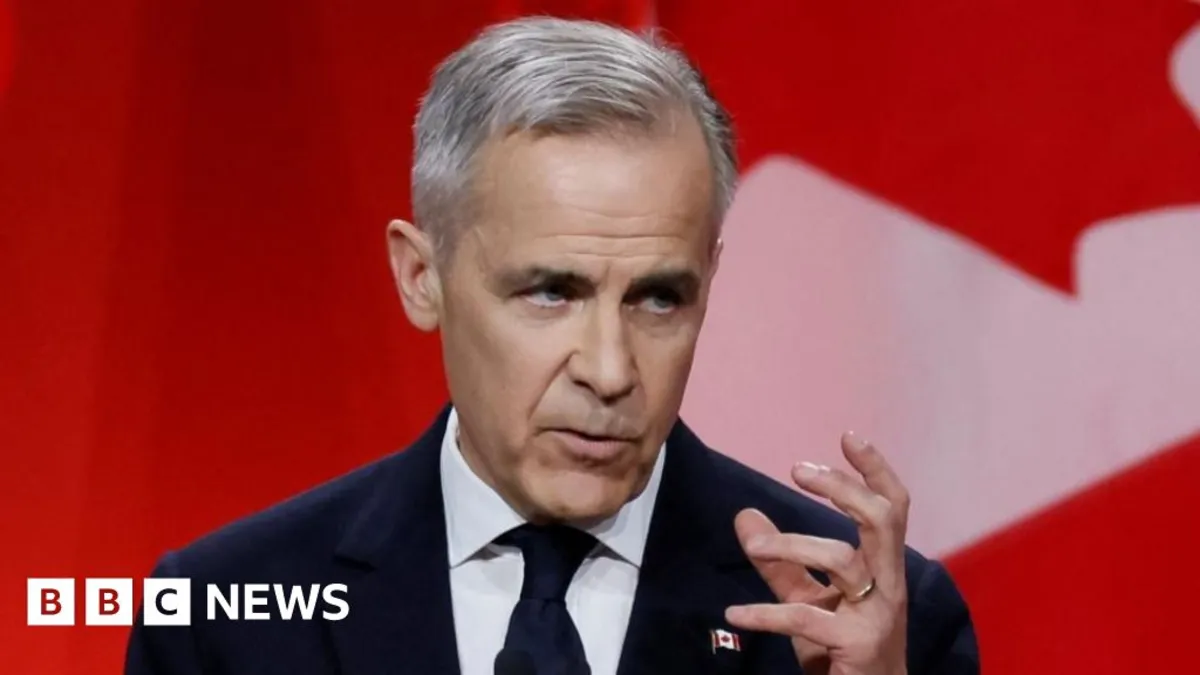
Mark Carney has emerged as the new Prime Minister of Canada, pledging to confront and win the ongoing trade war with U.S. President Donald Trump. This transition comes at a crucial time for Canada, as Carney takes the helm amidst significant political and economic instability. The former governor of the Canadian central bank and the Bank of England achieved a stunning victory in the Liberal Party leadership race, defeating three rivals with a commanding 85.9% of the vote.
In his victory speech, Carney, aged 59, made a clear stance against Trump, who has imposed tariffs on Canadian goods and made controversial remarks about annexing Canada as the 51st state. "In trade, as in hockey, Canada will win," Carney declared, emphasizing his commitment to defending Canada's interests on the international stage. He is expected to be sworn in as Prime Minister in the coming days and will lead the Liberal Party into the next general election, which is anticipated to be called soon.
Mark Carney’s ascent to the position of Prime Minister is notable, as he has never held an elected office prior to this victory. The Liberal leadership race initiated in January after Justin Trudeau's resignation, which followed nearly a decade in power. Trudeau faced mounting pressure from within his party and the public due to issues such as the housing crisis and escalating living costs.
During the leadership race, Carney received overwhelming support from party members, with the Liberal Party reporting over 150,000 ballots cast in the election. The announcement of his victory elicited loud cheers from approximately 1,600 party supporters gathered in Ottawa, Canada’s capital.
As Prime Minister-designate, Carney will lead a minority government in Parliament, which presents both opportunities and challenges. He may opt to call a snap general election, or opposition parties could push for one via a no-confidence vote. The political landscape has shifted dramatically since Trudeau's departure, with the Liberal Party rallying support in response to Trump's aggressive trade policies.
Once trailing the Conservative Party, led by Pierre Poilievre, by more than 20 points, the Liberals have managed to close this gap significantly. Current polls suggest they are now in a statistical tie, largely influenced by Carney's tough stance on trade.
Mark Carney has been vocal about the unjustified tariffs imposed by the U.S. on Canadian goods, which recently included a 25% levy. Although the U.S. later adjusted this policy, exempting certain goods under existing trade agreements, the tension remains palpable. Carney has vowed to keep retaliatory tariffs on U.S. imports until Canada is treated with the respect it deserves. "We can't let him succeed," Carney asserted, emphasizing the need for unity among Canadians in challenging times.
With Canada’s economy heavily reliant on its trade relationship with the U.S., Carney's administration will need to navigate these turbulent waters carefully. He expressed a sense of urgency, stating, "I know these are dark days, brought on by a country we can no longer trust." Carney's commitment to securing borders, a key concern for Trump, adds another layer to his approach in handling U.S.-Canada relations.
In the wake of Trudeau's farewell, which underscored the existential challenges posed by the Trump administration, Carney faces a formidable opposition. The Conservative Party has attempted to reposition itself politically, criticizing Carney as merely a continuation of Trudeau's policies rather than a genuine change in leadership. They have also accused him of misrepresenting his involvement with Brookfield Asset Management's relocation to New York.
Federal Public Safety Minister David McGuinty, a Carney supporter, praised him for his "quiet determination" and competence in addressing critical issues facing the country. As the Liberal Party prepares for the upcoming elections, they will contend not only with Poilievre's Conservatives but also with the Bloc Quebecois and the New Democrats, who hold 33 and 24 seats in the House of Commons, respectively.
Mark Carney's leadership marks a shift in the Liberal Party's agenda towards a more centrist platform. His key policies aim to promote major energy projects, including pipelines that have faced political hurdles in recent years. Carney has pledged to invest significantly in housing and clean energy initiatives while also working to liberalize trade within Canada to foster economic diversification away from dependence on the U.S.
Throughout the leadership race, Carney emphasized the need to cap the size of the federal government, which expanded significantly during Trudeau's tenure, by 40%. This commitment to fiscal responsibility and economic development will be central to his administration as he prepares to lead Canada through these challenging times.